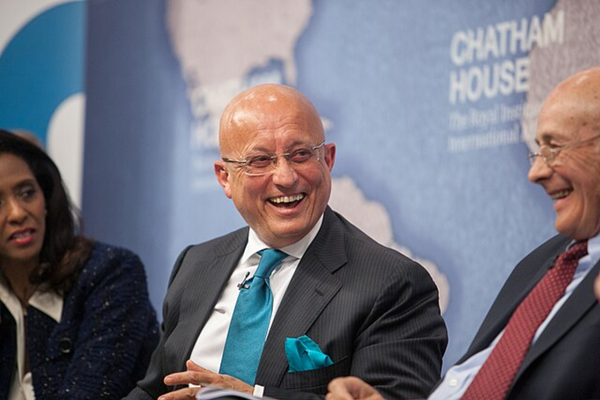LOS ANGELES — Battered and weary after navigating two years of a punishing pandemic, Hollywood soldiered on with one of its most hallowed traditions Tuesday morning, unveiling nominations for the 94th Academy Awards.
While the movie industry as a whole may not be in the most festive mood these days, academy voters still found plenty worth celebrating from the past year, spreading their love to films and performances across a wide range of genres, with Netflix’s Western drama “The Power of the Dog” leading the pack with 12 nominations followed by the sci-fi epic “Dune” with 10.
Both were picture nominees along with “Belfast,” “CODA,” “Don’t Look Up,” “Drive My Car,” “King Richard,” “Licorice Pizza,” “Nightmare Alley” and “West Side Story.”
In the acting categories, lead actor nominations went to Javier Bardem (“Being the Ricardos”), Benedict Cumberbatch (“The Power of the Dog”), Andrew Garfield (“Tick, Tick … Boom!”), Will Smith (“King Richard”) and Denzel Washington (“The Tragedy of Macbeth”).
Lead actress nods went to Jessica Chastain (“The Eyes of Tammy Faye”), Olivia Colman (“The Lost Daughter”), Penélope Cruz (“Parallel Mothers”), Nicole Kidman (“Being the Ricardos”) and Kristen Stewart (“Spencer”). In one of the morning’s surprises, Lady Gaga failed to make the cut for her work in “House of Gucci.”
Jane Campion became the first woman ever to score a second directing nomination for her work in “The Power of the Dog,” with other directing nods going to Paul Thomas Anderson (“Licorice Pizza”), Kenneth Branagh (“Belfast”), Ryûsuke Hamaguchi (“Drive My Car”) and Steven Spielberg (“West Side Story”).
Here are a few key takeaways:
STREAMING DOMINATION
With movie theaters continuing to struggle to draw audiences for adult-oriented fare and studios recalibrating their release strategies in response, streaming services unsurprisingly dominated this year’s Oscar nominations.
Half of the best picture nominations went to films that either debuted on a streaming service or were released simultaneously in theaters and via streaming, showing the continued inexorable shift in viewing habits for awards fare away from theaters and toward the living room.
For the third year in a row, Netflix — which is still in the hunt for its first best picture Oscar win — led the field with 32 nominations, fueled by “The Power of the Dog” and “Don’t Look Up.” Apple Original Films scored its first best picture nod for “CODA,” which the company acquired at last year’s Sundance Film Festival for a record-setting $25 million.
VANISHING BLOCKBUSTERS
Two years ago — which to many in Hollywood feels like a lifetime ago — five of 2020’s best picture nominees crossed the $100-million mark at the domestic box office. This year, only one managed to clear that benchmark. “Dune” just barely made it, grossing $107 million domestically. Despite starry casts and A-list-directors, Spielberg’s “West Side Story” has pulled in just $35 million and Guillermo del Toro’s noir “Nightmare Alley” has made only $10 million.
Marvel fans who may have hoped to see the year’s biggest box office smash by far, “Spider Man: No Way Home,” pull in a best picture nomination came away disappointed, with the film scoring just a single nod for visual effects. While the massive box office haul of “Spider-Man” — three-quarters of a billion dollars domestically and counting — has given the industry a much-needed morale boost, academy voters apparently felt the film didn’t have the artistic heft or historical import of the two previous comic-book films that managed to score best picture nods, “Black Panther” and “Joker.”
For a film academy that has seen ratings for the Oscars steadily dwindle over the past two decades, reaching all-time low of less than 10 million viewers last year, the lack of widely seen box office hits may portend more trouble for this year’s telecast, scheduled for March 27. But academy leaders can at least console themselves with the fact that plenty of people have watched some of this year’s best picture nominees from the comfort of their couches. While streaming services tend to keep their viewership figures to themselves, Netflix revealed last month that “Don’t Look Up” set a record for the platform with more than 152 million hours watched in its first week.
A MIXED BAG FOR SMALLER FILMS
If this year’s theatrical environment has been tough for even splashy, star-studded Oscar bait, it’s been downright brutal for arthouse fare. Without the benefit of the usual packed awards-season circuit of cocktail parties, screenings and Q&As, some smaller, more idiosyncratic awards hopefuls that have stuck to traditional theatrical releases have struggled to generate sustained enthusiasm.
Despite earning raves at last fall’s Telluride Film Festivals, for example, A24’s “C’Mon C’Mon” and “Red Rocket” came up empty-handed. The company’s “The Tragedy of Macbeth,” which some had considered a contender for best picture, failed to make the cut, though the film did earn three nods, including a lead actor nod for Washington.
Still, the news wasn’t all grim for independent films, with a few smaller specialty releases managing to squeeze into the best picture race. Most notably: Sideshow and Janus Films’ drama “Drive My Car,” based on a short story by Haruki Murakami, made a surprisingly strong showing with four nominations, including best picture and director. If a quiet three-hour Japanese-language film dealing with themes of regret and loss can still grab Oscar voters’ attention to this degree, perhaps there is still life in the arthouse after all.
____







